Spain Catalonia: Puigdemont's arrest in Germany sparks mass protests
Protests broke out across the Spanish region of Catalonia on Sunday after former leader Carles Puigdemont was taken into custody in Germany.
At least 89 people were injured in clashes with police and four arrests were made.
Mr Puigdemont, who is wanted in Spain for sedition and rebellion, was detained by German police acting on a European arrest warrant.
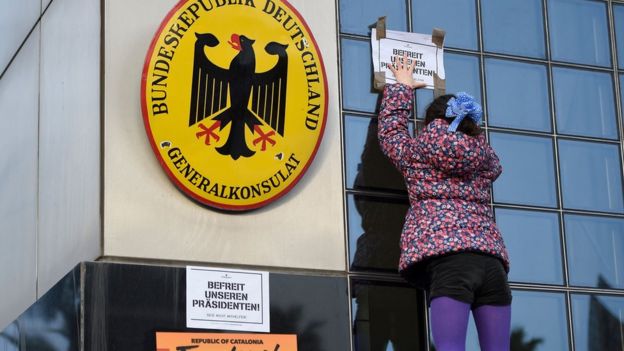 AFP
AFP
Smaller demonstrations were held in Girona, where Mr Puigdemont once served as mayor, Tarragona and Lleida. Some protesters also formed road blocks in various locations.
Tensions in Catalonia are very high and its separatist leaders abandoned plans to name a new president after the arrest on Friday of the latest candidate, Jordi Turull, sparked protests in Barcelona.
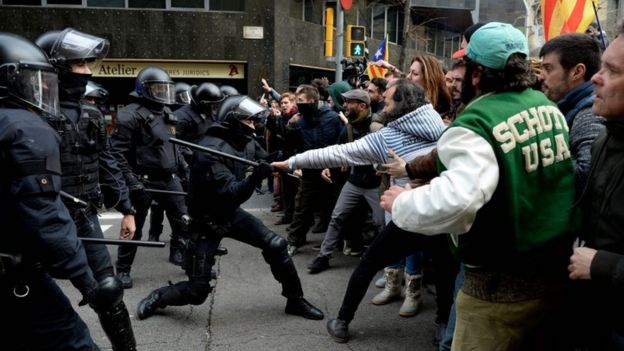 AFP
AFP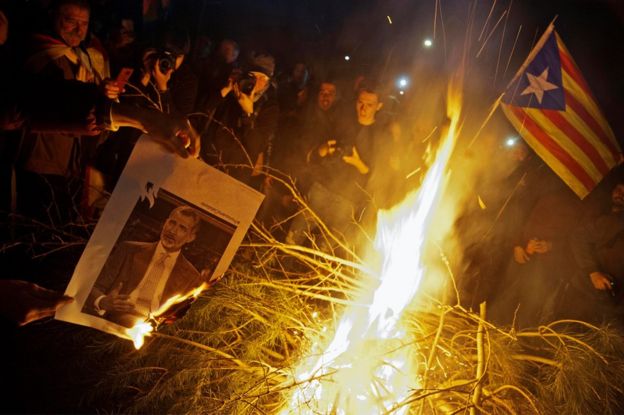 EPA
EPA
Spain's Supreme Court has ruled 25 that Catalan leaders should be tried for rebellion, embezzlement or disobeying the state. They all deny the allegations.
How was Carles Puigdemont caught?
German police said that Mr Puigdemont was detained by a highway patrol in the northern state of Schleswig-Holstein, which borders Denmark.
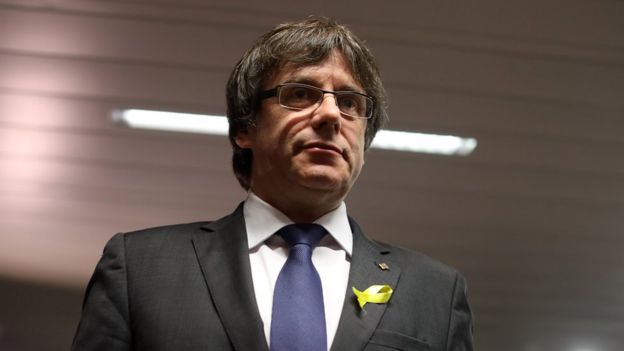 GETTY IMAGES
GETTY IMAGES
He had been on a trip to Finland to meet lawmakers and attend a conference last week when the arrest warrant against him was reissued, taking him by surprise.
He slipped out of Finland before the authorities could arrest him but only got as far as Germany before being intercepted.
His spokesman, Joan Maria Pique, said had been heading to Belgium "to put himself, as always, at the disposal of Belgian justice".
International warrants for Mr Puigdemont and other Catalan leaders were withdrawn in December by a Spanish judge, who said they had shown a willingness to return to the country.
What happens next?
Mr Puigdemont has spent the night in a prison in the north German town of Neumünster.
His court appearance on Monday will be a formality to confirm his identity.
German judges will have to assess if there is an equivalent to the Spanish charges of sedition and rebellion in German law.
German judges do not have to prove an offence has taken place.
The extradition procedure lasts about two months. If it formally begins, then a judge will decide whether Mr Puigdemont will be kept in custody.
The charges he faces in Spain could result in up to 30 years in prison.
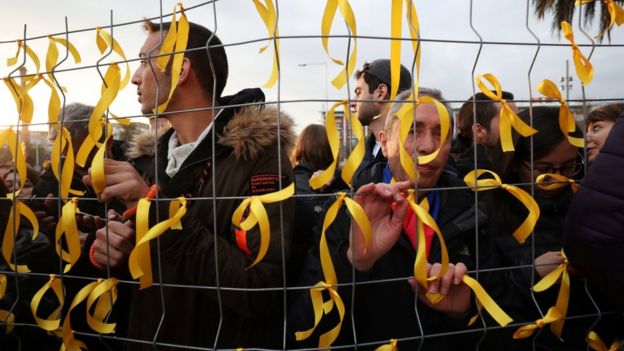 REUTERS
REUTERS
Spain's latest move is considered the most serious challenge to date to the Catalan independence movement. Almost the entire leadership now faces a major legal fight.
Various other Catalan politicians have been subjected to new warrants, including Catalonia's former education minister, Clara Ponsati. She is in Scotland, where she has a position at the University of St Andrews, and is preparing to hand herself in.
How we got here
1 October 2017: The independence referendum takes place in Catalonia; it is deemed illegal by Spain and boycotted by many potential voters
27 October: Catalonia's leaders declare independence, which leads to the Spanish government imposing direct rule on the region and dissolving its parliament
30 October: Charges of rebellion, sedition and misuse of public funds are brought against various sacked members of the Catalan government, including Mr Puigdemont
2 November: Several former Catalan ministers are taken into custody in Spain
3 November: European Arrest Warrants are issued against Mr Puigdemont and four of his allies, who have all fled to Belgium
5 December: A Spanish judge withdraws the European arrest warrants but says the group still face possible charges for sedition and rebellion
21 December: Carles Puigdemont is re-elected to parliament during Catalan's regional elections - which Spanish PM Mariano Rajoy had called to "restore democracy"
1 March 2018: Mr Puigdemont says he is stepping aside and he backs detained activist Jordi Sanchez to run as Catalonia's president
21 March: Mr Sanchez drops his leadership bid and instead the candidacy is passed to Jordi Turull, who the following day is rejected by hardline separatists
23 March: Mr Turull and various others are arrested in Spain, and the European arrest warrants are reissued
25 March: Mr Puigdemont is detained in Germany








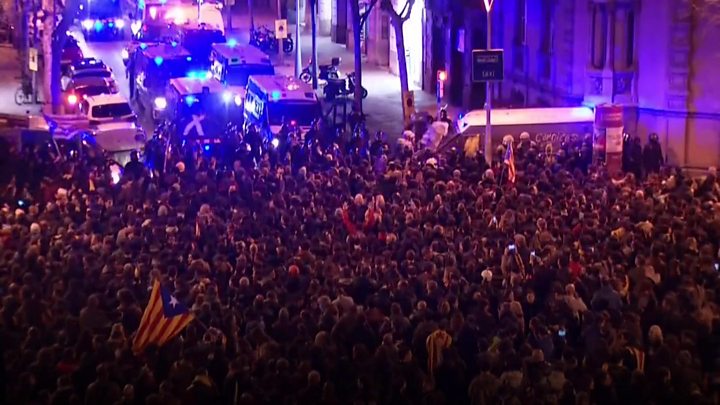
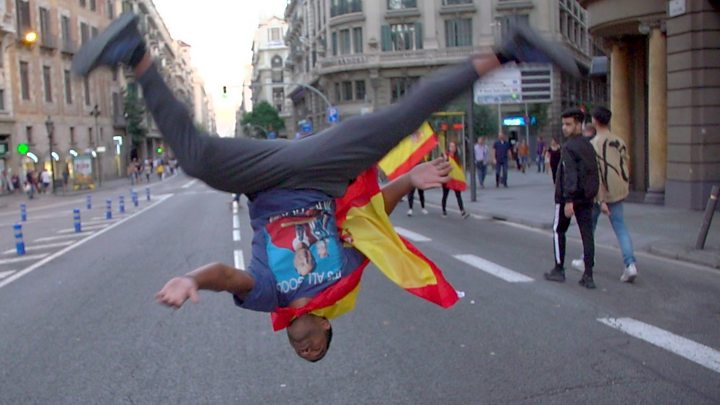



0 comments:
Post a Comment